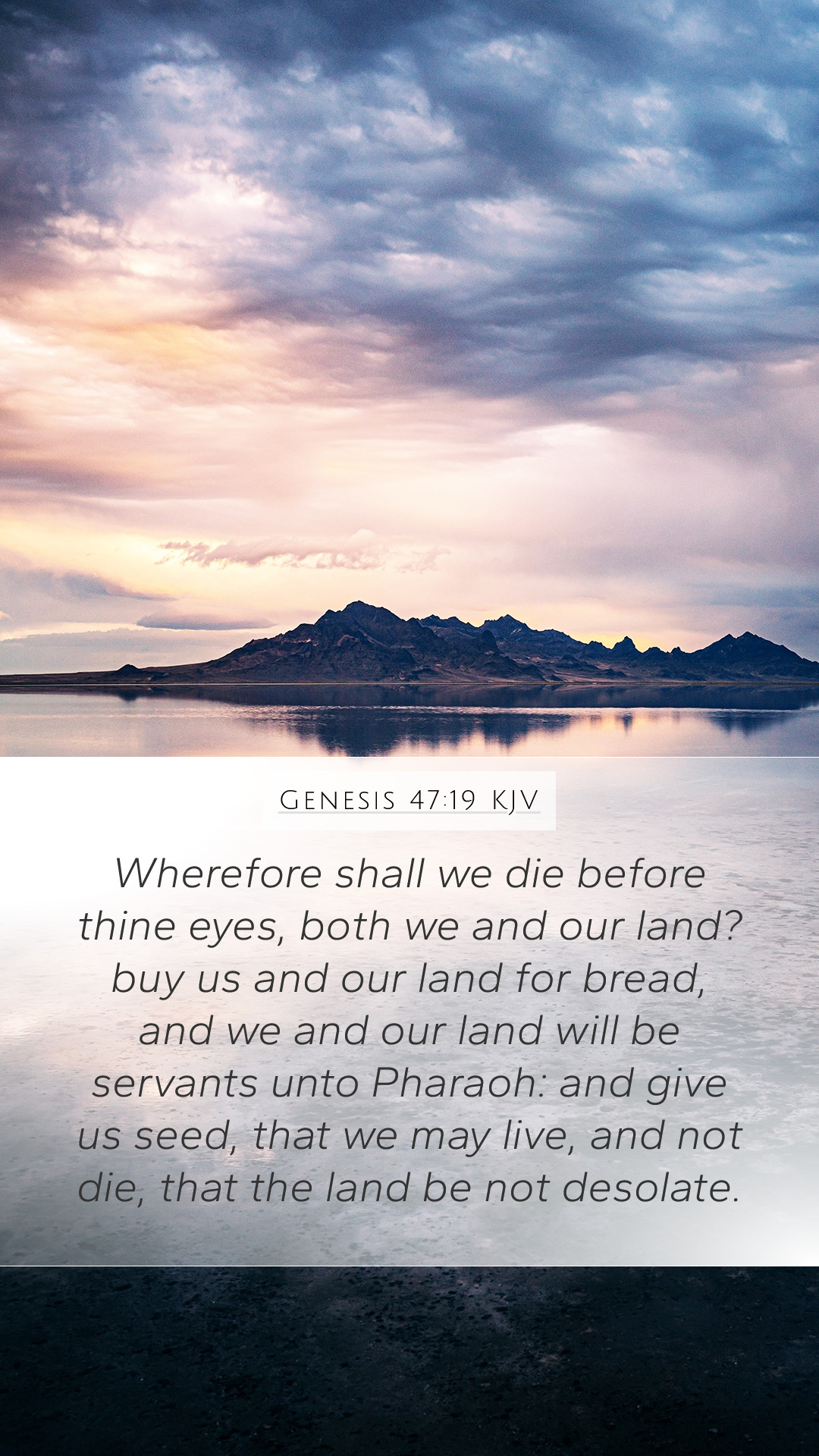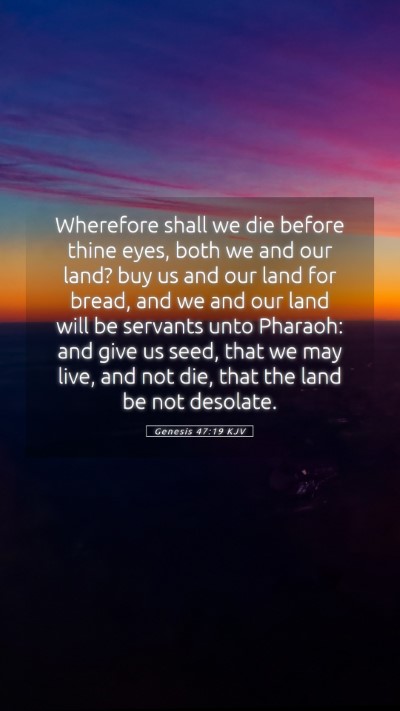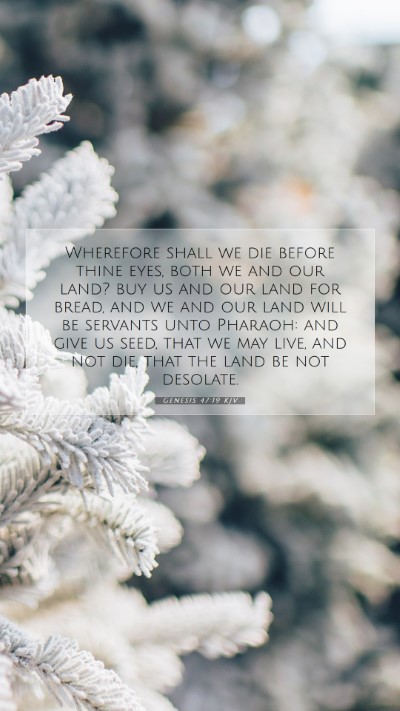Bible Verse Meaning: Genesis 47:19
In Genesis 47:19, we encounter a pivotal moment in the account of Joseph and his brothers during a time of severe famine in Egypt. This verse highlights the complexities of survival during dire circumstances, outlining the transactions between the Egyptians and Joseph, who was appointed by Pharaoh to manage food distribution. Understanding this verse requires an exploration of its historical context, divine providence, and moral implications as interpreted through various public domain commentaries.
Overview of Genesis 47:19
The verse states:
“Why should we die before your eyes, both we and our land? Buy us and our land for bread, and we and our land will be servants to Pharaoh. Give us seed, that we may live, and not die, and that the land may not be desolate.” (Genesis 47:19 NKJV)
Contextual Analysis
Joseph's rise to power came after his brothers sold him into slavery, which led him to Egypt. Through God's providence, he interpreted Pharaoh's dreams about the upcoming famine and was tasked with preserving food. The famine affected the entire region, causing desperation among the people of Egypt.
Matthew Henry's Commentary
Henry emphasizes the desperation of the Egyptians, noting that they offer themselves and their land to Pharaoh for sustenance. This reflects not only their physical needs but their submission to authority in a time of crisis. Such an agreement signals a significant shift in human dealings and the power dynamics prevalent during the famine.
Albert Barnes' Notes
Barnes points out that this verse illustrates the gravity of the situation as people prioritize survival over their freedom. They willingly choose servitude to ensure their survival, showcasing a form of pragmatism that many face in times of scarcity. The request for seed signifies a hope for renewal and sustenance beyond immediate survival.
Adam Clarke's Commentary
Clarke notes the theological implications of this exchange, suggesting that it reflects God's overarching plan even through difficult circumstances. He highlights the notion of servitude and dependence on God for provision, which mirrors humanity's spiritual need for redemption. Clarke further emphasizes the morality behind the Egyptians’ choice, underscoring the balance between survival and servitude.
Interpretative Insights
- Human Desperation: The plea of the Egyptians underscores the lengths to which people will go when faced with existential threats.
- The Nature of Power: This instance serves as a critique of power dynamics, both socially and politically, during crises.
- Divine Providence: The circumstances reflect God’s control over human affairs, providing for His people even in times of difficulty.
- Moral Choices: The passage prompts readers to consider the ethical implications of survival strategies and the balance between dependence and oppression.
- Hope for Restoration: The request for seed symbolizes a longing not merely for sustenance but for a future and renewal.
Historical Context
This verse is rooted deeply in the historical narrative of the patriarchs. It signals a transition where the descendants of Abraham, Isaac, and Jacob move into a position of servitude in Egypt, setting a framework for understanding later events in the Exodus narrative. This historical situation provides a backdrop for understanding biblical themes such as slavery, redemption, and divine intervention.
Cross References
Several other Bible verses enhance our understanding of Genesis 47:19, including:
- Exodus 1:8-14: Discusses the subsequent oppression of the Israelites in Egypt.
- Genesis 41:30-30: Foretells the famine that leads to this desperate situation.
- Matthew 6:25-26: Encourages dependence on God for provision.
Applications of Genesis 47:19
As modern readers or participants in bible study groups, it is important to reflect upon the relevance of this verse:
- What does this verse teach about the nature of human need and divine provision?
- How can we apply the lessons from this survival story to our own lives, especially in terms of dependence on God?
- What ethical considerations arise from our own life choices in the face of adversity?
Conclusion
This exploration of Genesis 47:19 reveals intricate layers of meaning, urging readers to delve deeper into Bible verse interpretations and the significance of Scriptural passages. Through the lens of historical context, theological reflection, and moral inquiry, we find a rich tapestry that speaks not only to the struggles of the past but to present-day applications and the ongoing quest for understanding Scripture.


